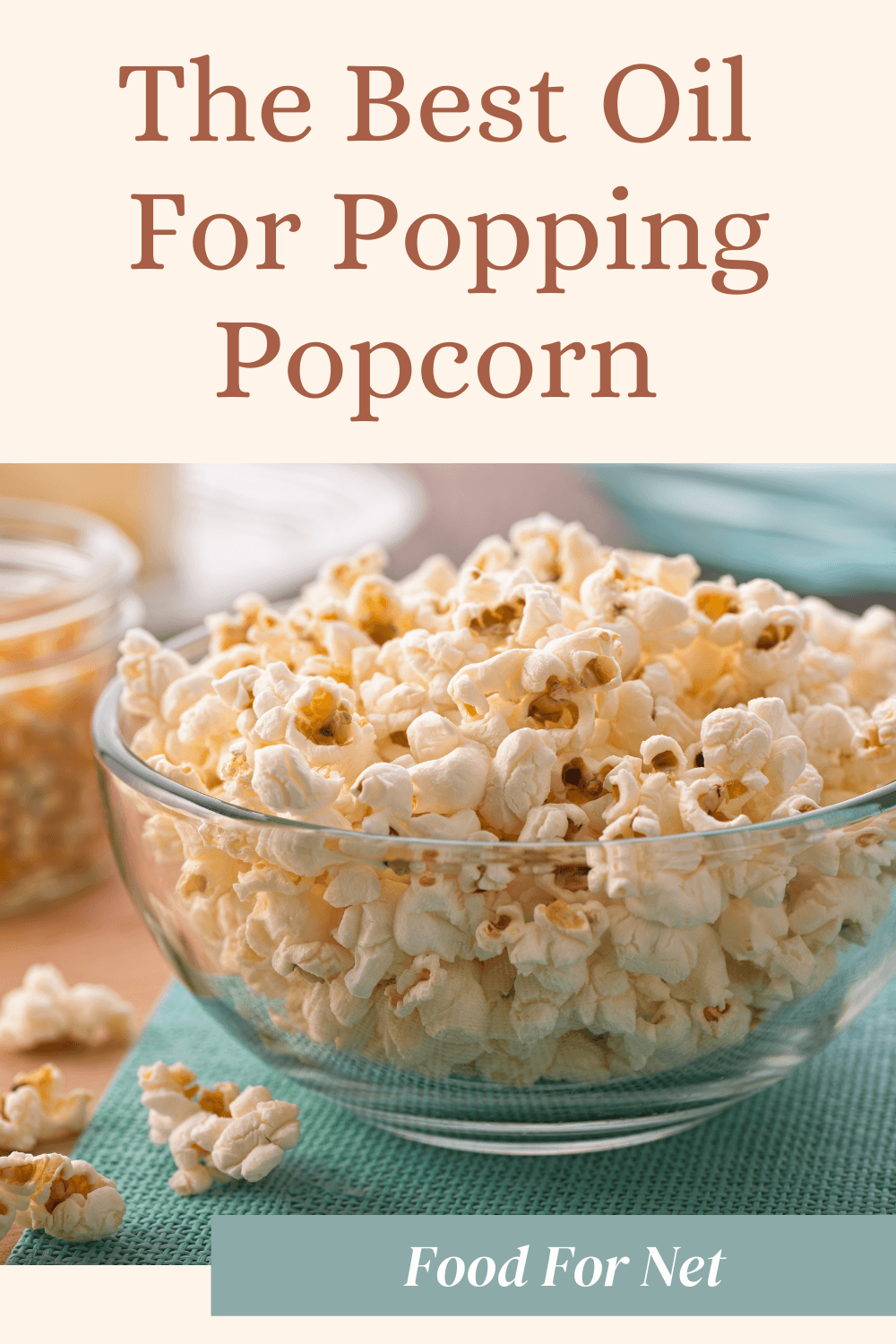
Popcorn is a delicious treat. It can even be healthy if you make it at home and choose your toppings well. The oil you choose will make a difference too. So, what’s the best oil for popping popcorn?
You have plenty of options here. Some people turn to canola oil because it has a decent smoke point and is cheap. Others look to less processed options, including olive oil and coconut oil.
There are many healthy ways to pop popcorn, and many stores carry a wide variety of oils. You can even order most oils online, which works out great if you want some specialty oils, or large quantities of your favorite type of oil. For example, I use lots of avocado oil when cooking. It’s only available in cute little hipster bottles at my local Save Mart, so I buy it in gallon jugs from online to save time and money.
[amazon table=”99368″]
These oils are all fantastic if you’re making popcorn at home. If that feels like too much work, why not sign up for a popcorn of the month club instead? These clubs send you popcorn every month. Not just any popcorn though. Many clubs focus on unusual and exciting flavors, ones that are never sold in local stores.
Best Oil For Popping Popcorn (With Pictures!)
Canola Oil
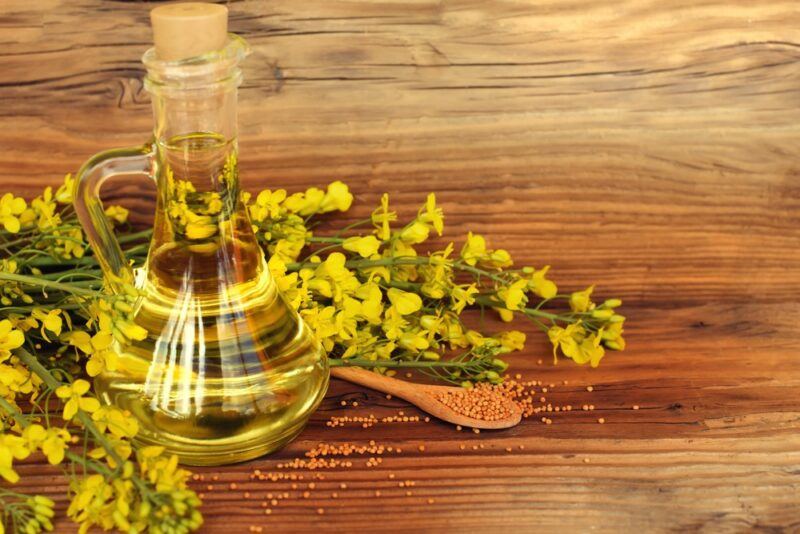
Canola oil is one of the most popular choices for popcorn, mostly because it’s inexpensive. The oil is also heavily refined, which gives it a decent smoke point and minimal flavor.
The health impacts are debatable. Some authors call canola oil as a healthy choice, as it’s low in saturated fat and contains plenty of healthy fats.
However, canola oil is also highly processed. The chemicals used can even leave residue in the oil and could impact your health. Many people choose to skip canola oil and look for less processed options.
Peanut Oil
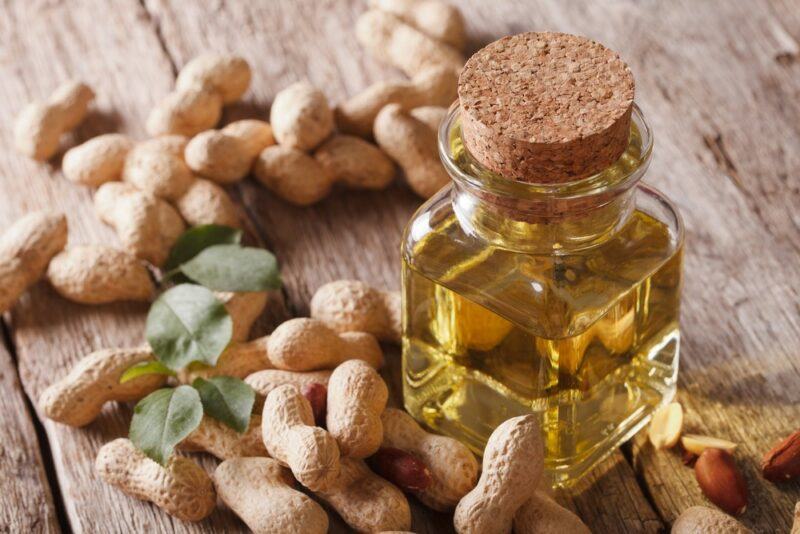
Peanut oil regularly tops lists of oils for popcorn, as the oil has a buttery flavor that naturally complements popcorn. It is also richer than many other oils.
However, the oil won’t work for anyone with a nut allergy. Some flavor from the peanuts comes through too, so this is best reserved for peanut lovers.
Peanut oil also has a high smoke point. This is excellent, reducing the risk that you’ll burn your popcorn.
Sunflower Oil
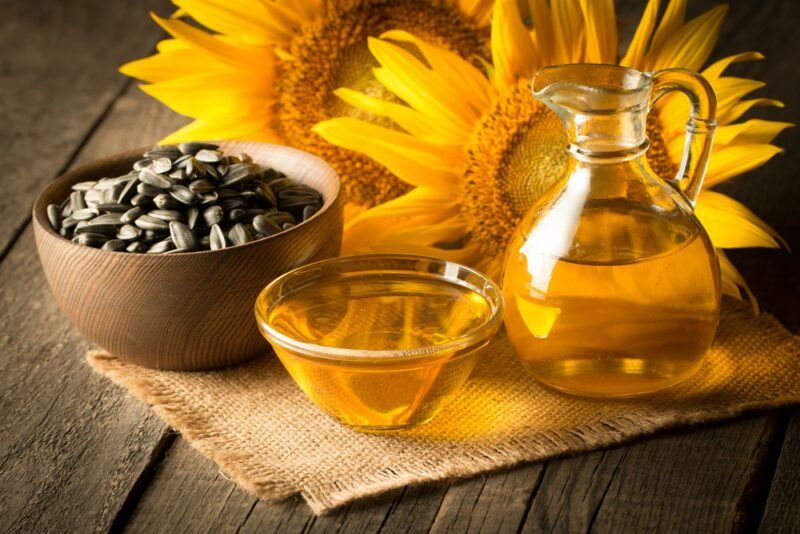
Sunflower oil is an easy choice, as the smoke point gets up to around 440˚F. It also has a mild flavor and doesn’t alter the taste of your popcorn much.
This is a refined oil, so it’s not the ideal choice for health. However, it still contains plenty of healthy fats and may help with cholesterol levels.
Vegetable Oil

You can also turn to vegetable oil. This has similar features to canola oil and sunflower oil, including being clear, having minimal flavor, being inexpensive, and being highly refined.
Vegetable oil has one distinct disadvantage – you don’t really know what you’re getting. Most vegetable oils rely heavily on soy and may include some canola too, along with other plants. The composition differs from product to product, which can change the smoke point a little too.
As with canola oil, there’s also concern about the refinement. Heavily processed oils like this could easily cause more harm than good, especially if you use them regularly.
Because the smoke point can vary, you’ll need to be cautious with any new vegetable oil. It might take you a few batches of popcorn to work out precisely where the smoke point is.
Grapeseed Oil
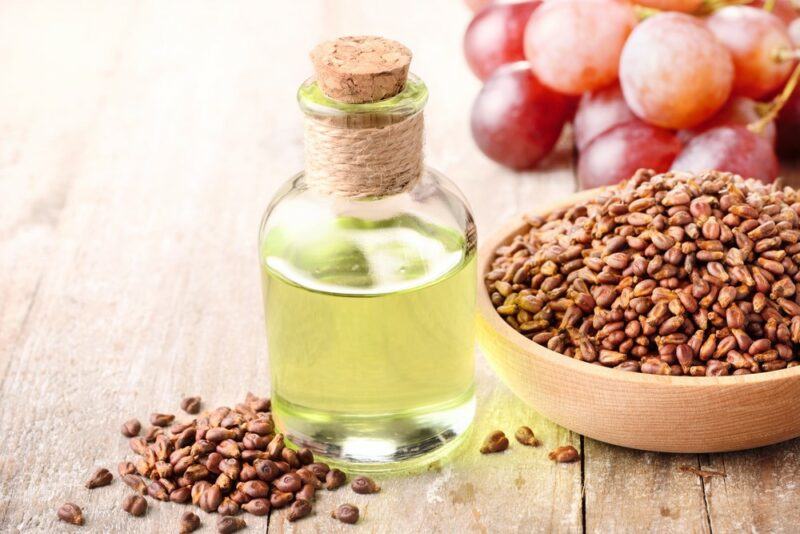
Grapeseed oil is interesting one. It has a high smoke point of roughly 420˚F. The oil is mostly neutral, but does have a slight nuttiness to it.
The flavor profile isn’t ideal for unflavored popcorn. But, for gourmet popcorn with interesting seasoning, grapeseed oil could be perfect.
Coconut Oil

Coconut oil is becoming more popular as a popcorn oil. The smoke point is high enough for popping popcorn (although you need to be a little cautious).
Unrefined coconut oil does have a distinct coconut flavor that doesn’t work well with unflavored popcorn. Refined coconut oil works better, as it doesn’t have the same coconut flavor and has a higher smoke point as well.
Ghee

Ghee is a type of clarified butter. It retains the rich butter flavor of regular butter, but has a higher smoke point.
This smoke point is important, as regular butter will start to burn before your kernels are popped. Even with ghee, you’ll need to watch the temperature carefully to make sure that it doesn’t burn.
Ghee and coconut oil differ from the other popcorn oil options, as they’re both high in saturated fat. Whether this matters depends on the amount you use and how you feel about saturated fat.
Avocado Oil
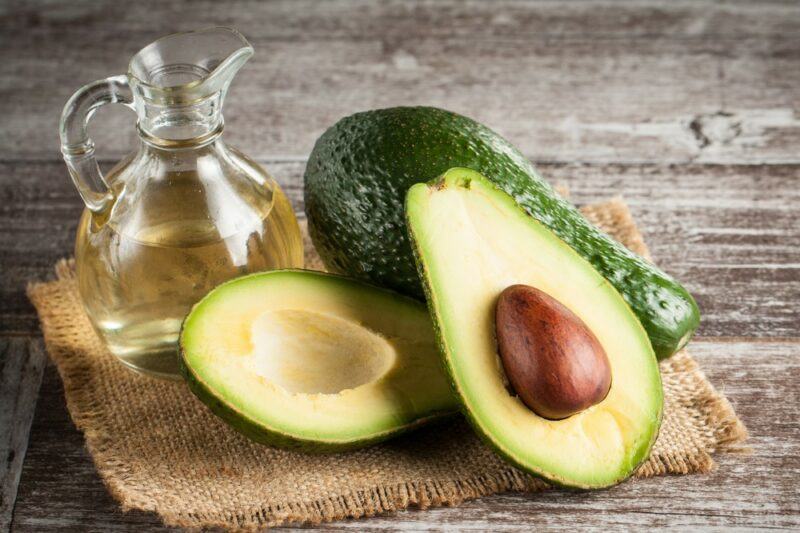
Avocado oil is increasing in popularity for cooking and making popcorn. It’s easy to see why too, as the oil contains plenty of healthy fats, is fairly natural, and also has a high smoke point.
It can have a distinct flavor, but this isn’t a bad thing. In fact, avocado oil can even lend a buttery taste to your popcorn.
The price is a turnoff though, as avocado is one of the most expensive cooking oils. Using it on popcorn may feel like a waste, especially as avocado oil isn’t that much better than the other options.
Olive Oil
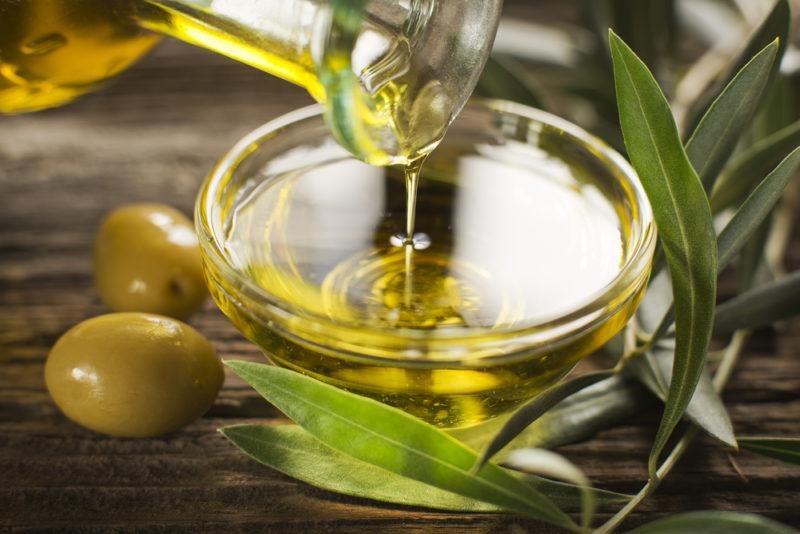
We can’t forget about olive oil, can we? This is an incredibly popular oil that’s rich in monounsaturated fats and antioxidants.
While the smoke point varies from product to product, it’s often between 374°F and 405°F for extra virgin olive oil and higher for refined olive oil. This means you can even use extra virgin olive oil for popcorn.
Virgin or even refined olive oil may be a better choice though. These often have a milder taste, which reduces the flavor impact on your popcorn.
Combining Oils
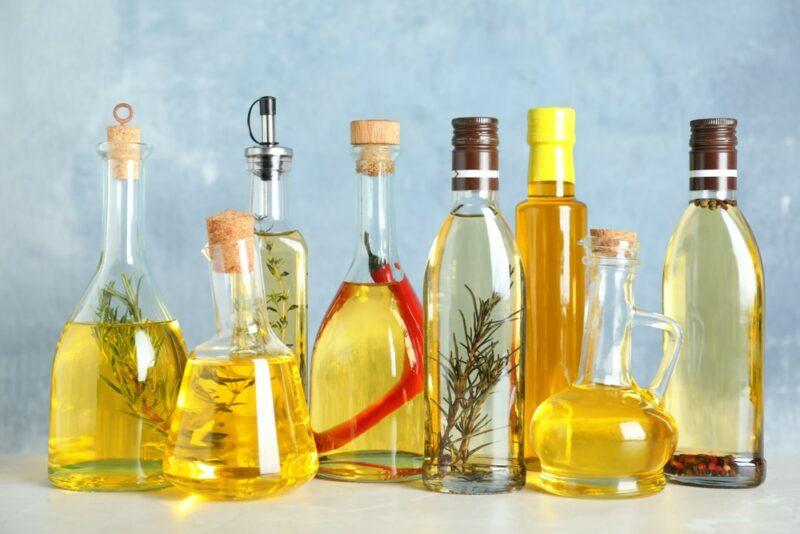
These cooking oils don’t need to be used independently. Sometimes using two or more oils helps you to balance their characteristics.
In particular, you may combine a high smoke point neutral oil with one that has a lower smoke point and a richer flavor. For example, butter, duck fat, or bacon grease all impart flavor to your popcorn, but have a fairly low smoke point. You probably wouldn’t use them on their own, but might combine them with grapeseed oil or avocado oil.
Using an oil with a fat like ghee helps too. This reduces the risk of soggy popcorn and keeps it nice and crunchy.
What About Coconut Oil And Olive Oil?
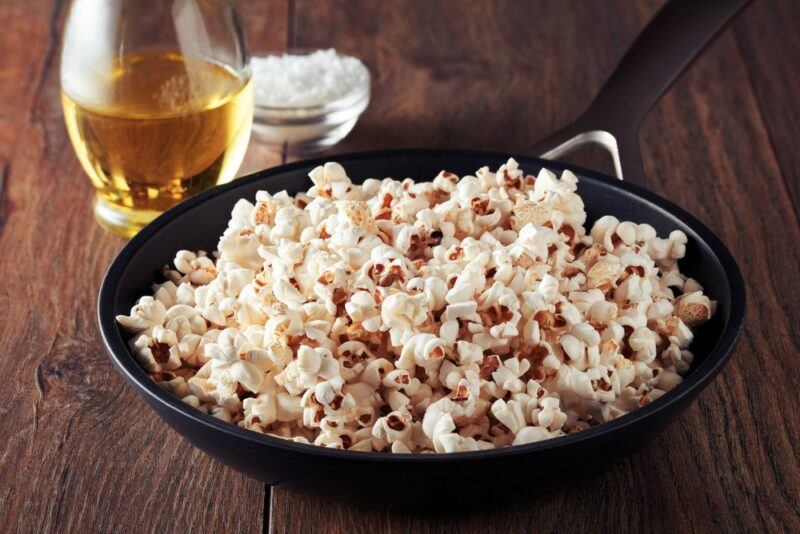
Olive oil and coconut oil can both be used for popcorn and each has its own interesting features. Olive oil is useful as it doesn’t impact the flavor of your popcorn much at all, while coconut oil is a useful source of MCTs.
However, you’ll normally use one oil or the other, rather than both. Coconut oil and olive oil would be tricky to use at the same time anyway, as coconut oil tends to be solid at room temperature, while olive oil doesn’t.
How To Make Popcorn With Oil
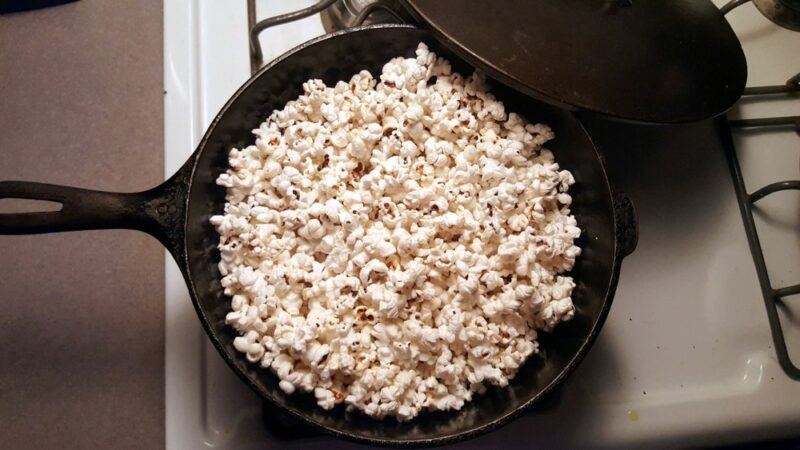
Making popcorn at home is simple. You just need your popcorn kernels, cooking oil, and salt, plus any toppings and mix ins.
You’ll want a pot that disperses heat well without hot spots. To begin with, bring the pot and oil to a medium heat (too low and the popcorn won’t pop, too high and the oil may burn). You can test the temperature by adding just a couple of kernels, then waiting for them to pop.
Once the oil has reached temperature, you add your popcorn kernels to the pot, put the lid on, then take it off the heat. This gives them time to settle. You can then put the pot back on the burner after a minute or so and wait till the kernels pop.
Opening the lid a little helps too. This releases steam and helps to keep your popcorn crisp.
How Much Oil Do I Need?
A good starting point is 1/2 cup of any cooking oil for every 1/3 cup of popcorn kernels. However, this is a heavily debated area. Some people increase the oil amount, while others decrease it.
It’s best to experiment with different ratios and see which one you like the best. You might even find that you need slightly different ratios for each type of oil.
Can You Skip The Oil?
Oil is often used for popcorn, but it’s not your only option. You can also make air popped popcorn. This can even be done using a frypan on the stove.
Air popped popcorn is naturally lower in fat and calories than popcorn made using oil (oil contains around 120 calories per tablespoon). This is perfect if you’re looking for a healthy snack.
In fact, a cup of air popped popcorn only contains around 30 calories per serving. It’s hard to get healthier than that.
Final Thoughts
Canola oil remains a popular and logical choice for popcorn. After all, it’s inexpensive, has little flavor, and is very low in saturated fat. Some people even call it the best possible choice.
However, canola oil is far from perfect. It’s often better to choose a less refined oil. Olive oil is especially good, as it contains powerful monounsaturated fats and is still low in saturated fat.
Coconut oil is popular as well. This oil may even be good for you, as some of the saturated fat is in the form of MCTs, which could help to decrease inflammation. Coconut oil also gives you delicious popcorn. That’s another reason to try it.
In the end, there’s no single best type of oil for popcorn. It all comes down to personal preference. Think about the flavor profile you’re looking for and the type of fat. For example, is the saturated fat in coconut oil okay or do you want a low saturated fat oil?
Once you know what you’re looking for, it should be easy to find an oil that matches your needs.


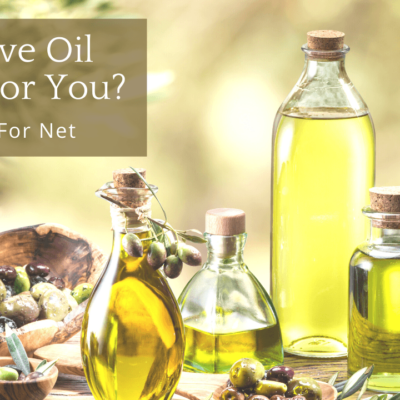

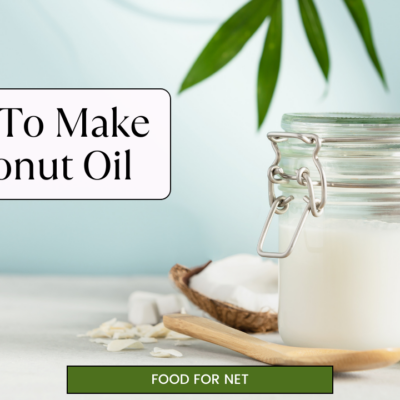
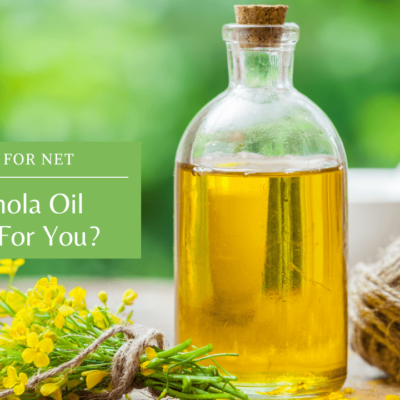
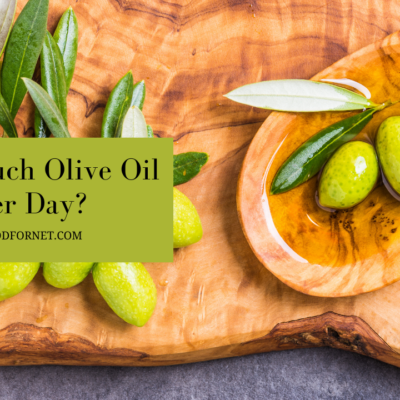
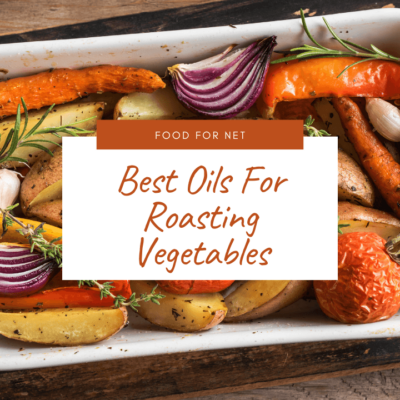
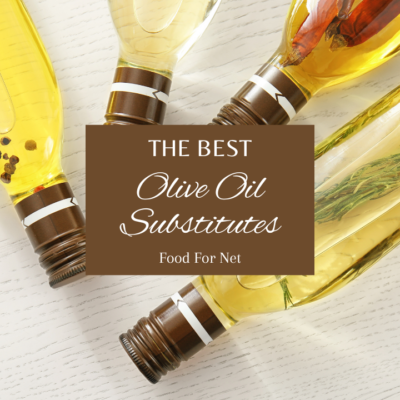
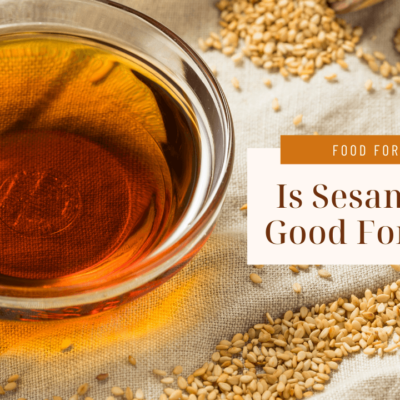
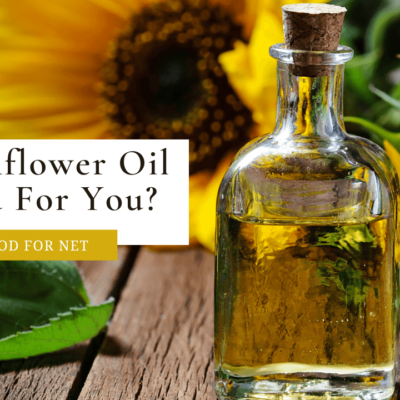
 Canola Oil Vs Olive Oil: Which One Wins?
Canola Oil Vs Olive Oil: Which One Wins?
Leave a Reply